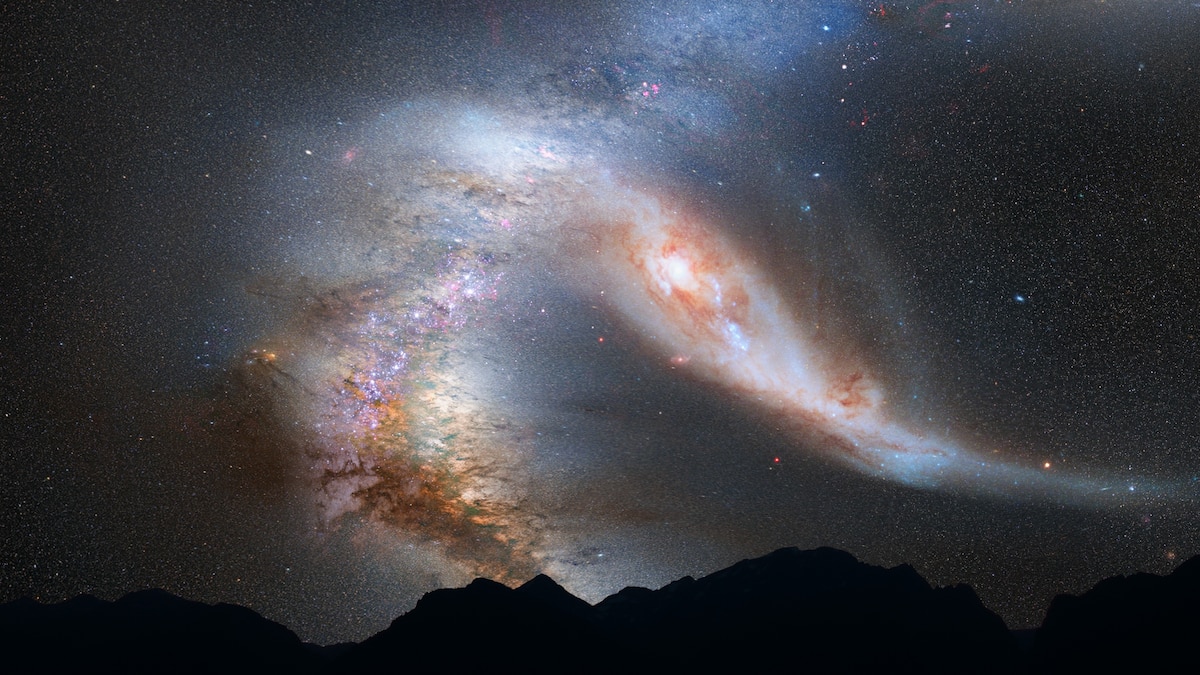Now Reading: Milky Way-Andromeda Collision: New Study Suggests a Different Outcome
-
01
Milky Way-Andromeda Collision: New Study Suggests a Different Outcome
Milky Way-Andromeda Collision: New Study Suggests a Different Outcome

Quick Summary
- Astronomers predicted for decades that the Andromeda and Milky Way galaxies would collide in 4-5 billion years, forming a single new galaxy.
- Recent simulations factoring in all major players in the Local Group-like the Triangulum Galaxy and Large Magellanic Cloud (LMC)-offer a new perspective: There’s now only a 50% chance of this merger happening.
- Other influences, such as the massive LMC, exert a repulsive gravitational force that could push the galaxies apart instead of bringing them together.
- If Milky Way and Andromeda merge, it could prevent star formation due too interactions between their central black holes. However, if they narrowly avoid collision, future star and planet formation will remain possible for billions more years.
- While dark matter may bind these galaxies toward collision, dark energy-which pushes objects apart-adds uncertainty to prediction models.
- Within two billion years from now, the LMC is almost certain to spiral into and be absorbed by the Milky Way.
- The research highlights complexities beyond earlier simplistic forecasts.
!Andromeda visible on Earth’s night sky
Photo: Babak Tafreshi/National Geographic Image Collection
!Infrared visualization of Andromeda Galaxy
Photo: ESA/NASA/StScI
Indian Opinion Analysis
This progress does not have immediate consequences for humanity or India but underscores progress made through space exploration technologies like Hubble Space Telescope and ESA’s Gaia observatory. For India-a nation rapidly advancing in space science through programs such as ISRO’s astronomical research-it reinforces how global cooperation in astrophysics leads to deeper understanding of vast cosmic phenomena.
India’s role could grow alongside these studies by contributing expertise or expanding its participation within international astronomy projects that involve simulating galactic behavior or researching factors like dark matter/dark energy.India’s increasing focus on its space economy can lead enhancements not just domestically but globally.
Moreover, it is humbling to consider events spanning billions of years-and reminds us how efforts like Earth’s climate preservation pale against worldwide scales yet remain urgent given humanity’s limited timeframe compared wiht celestial life cycles.
























